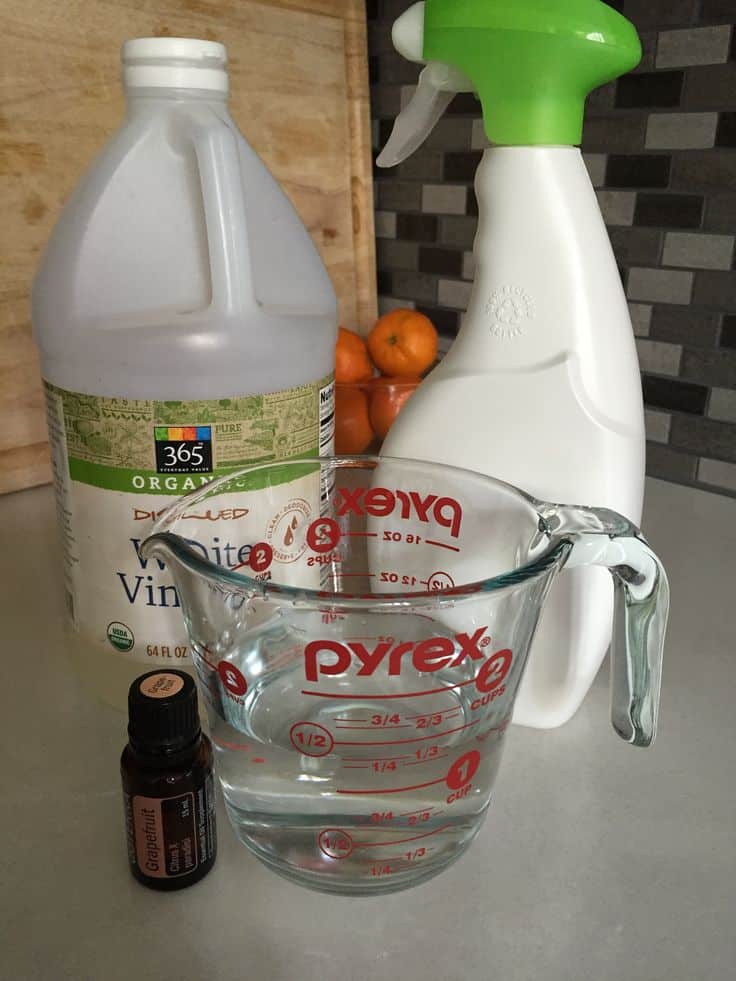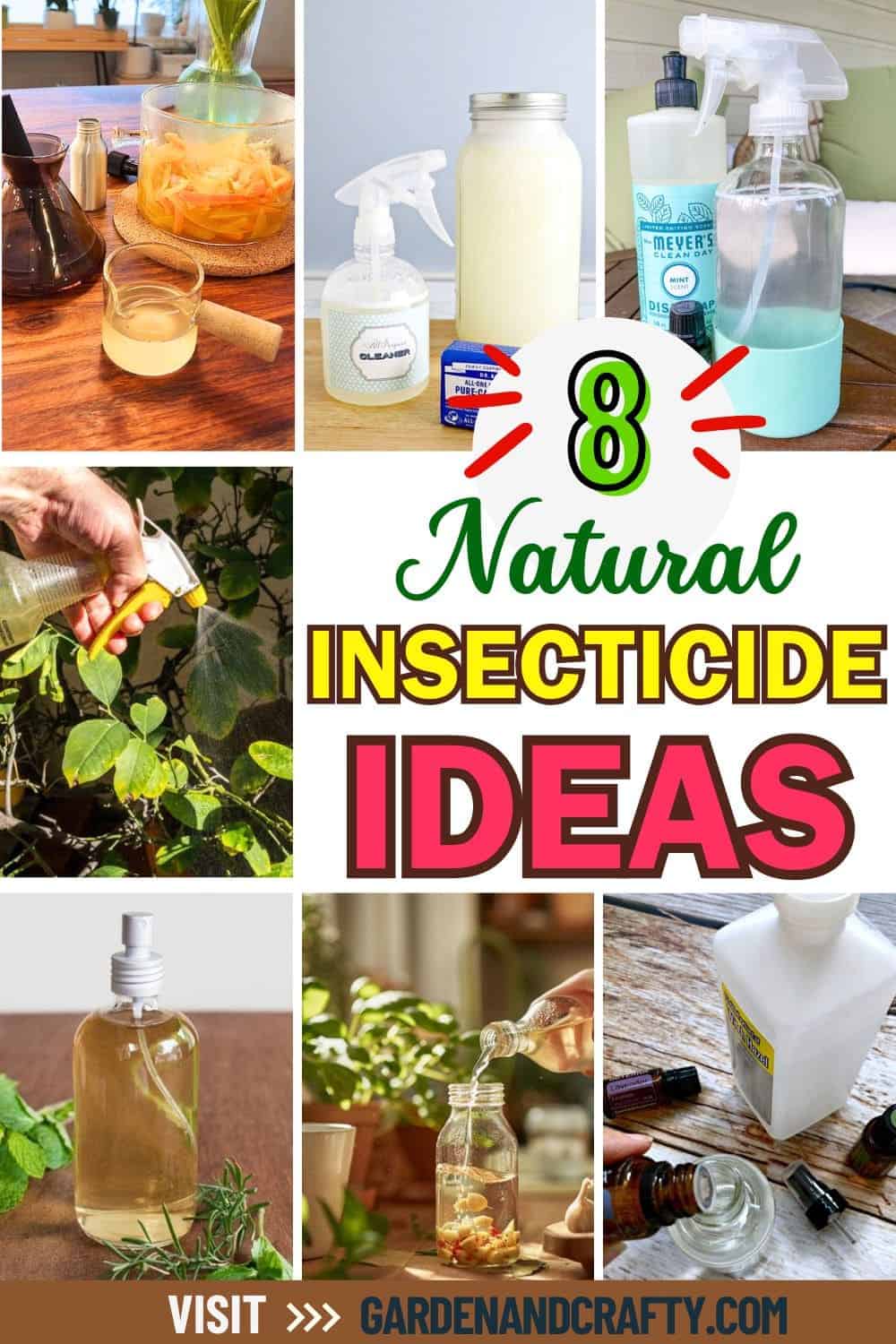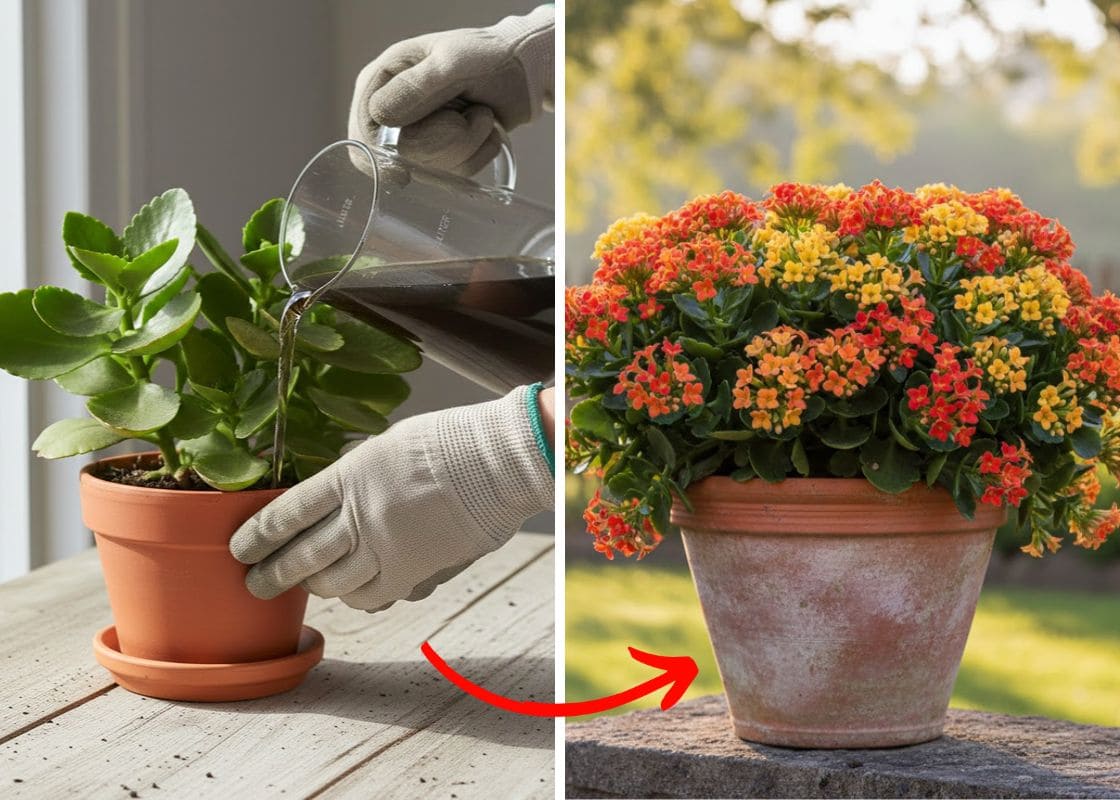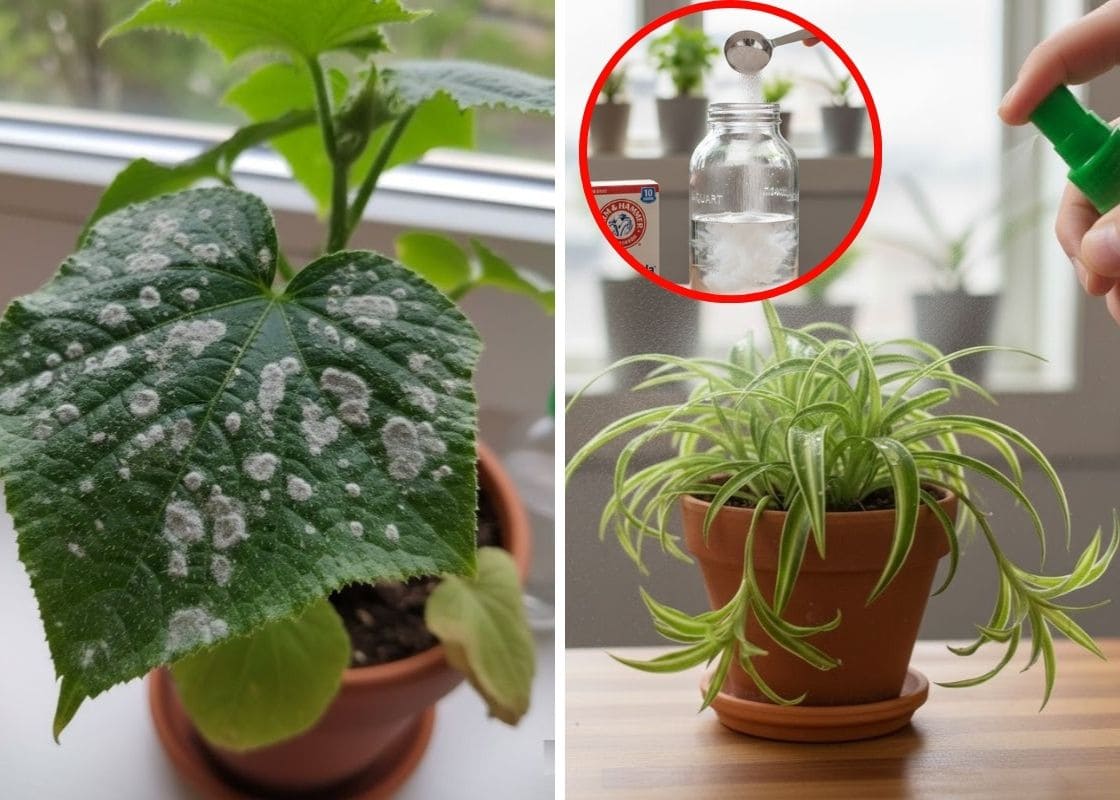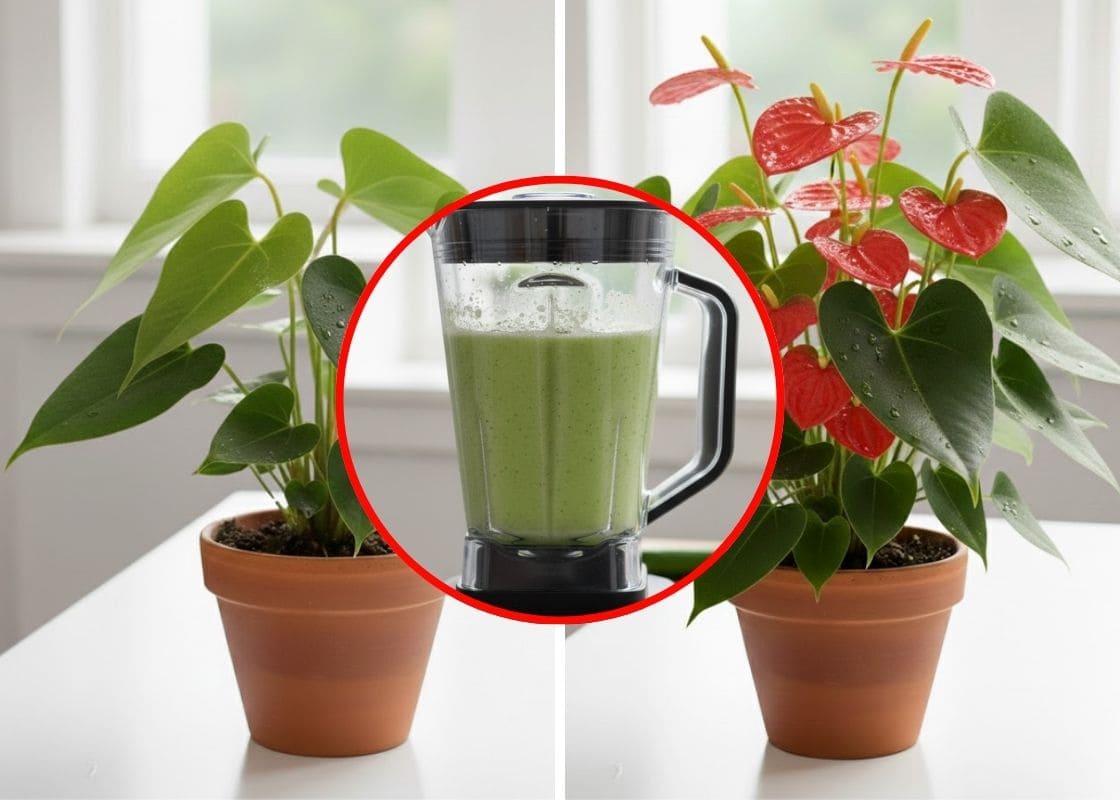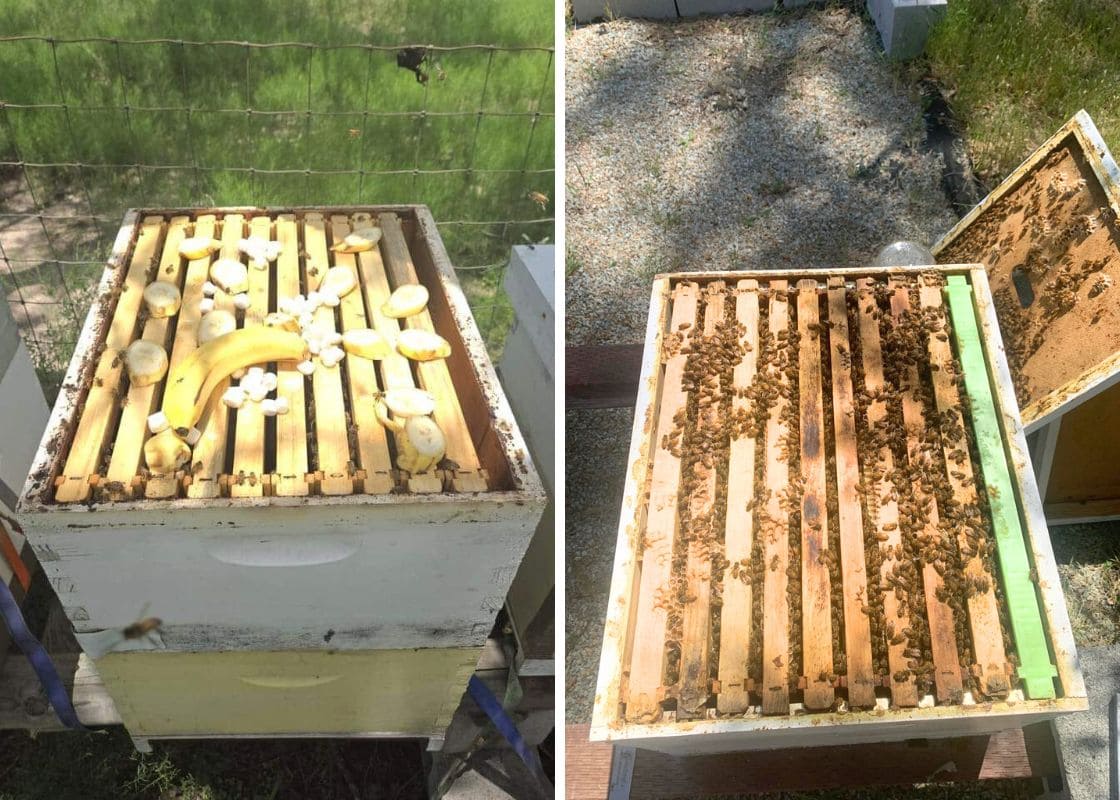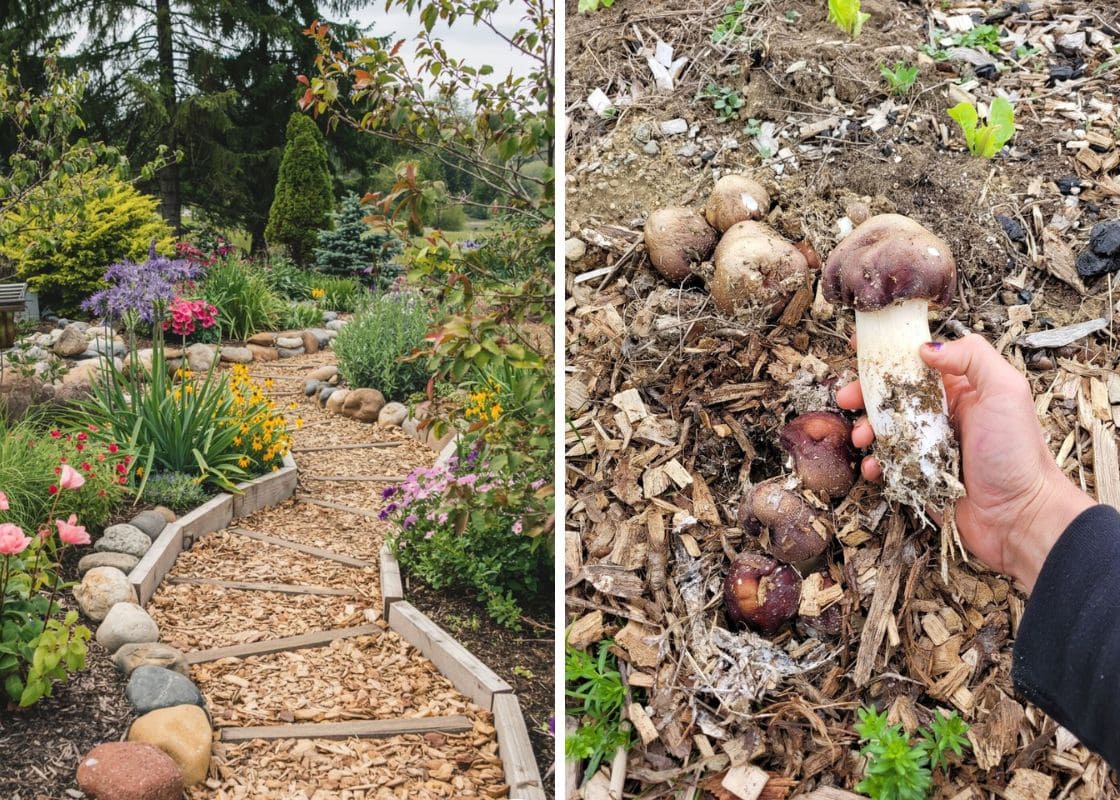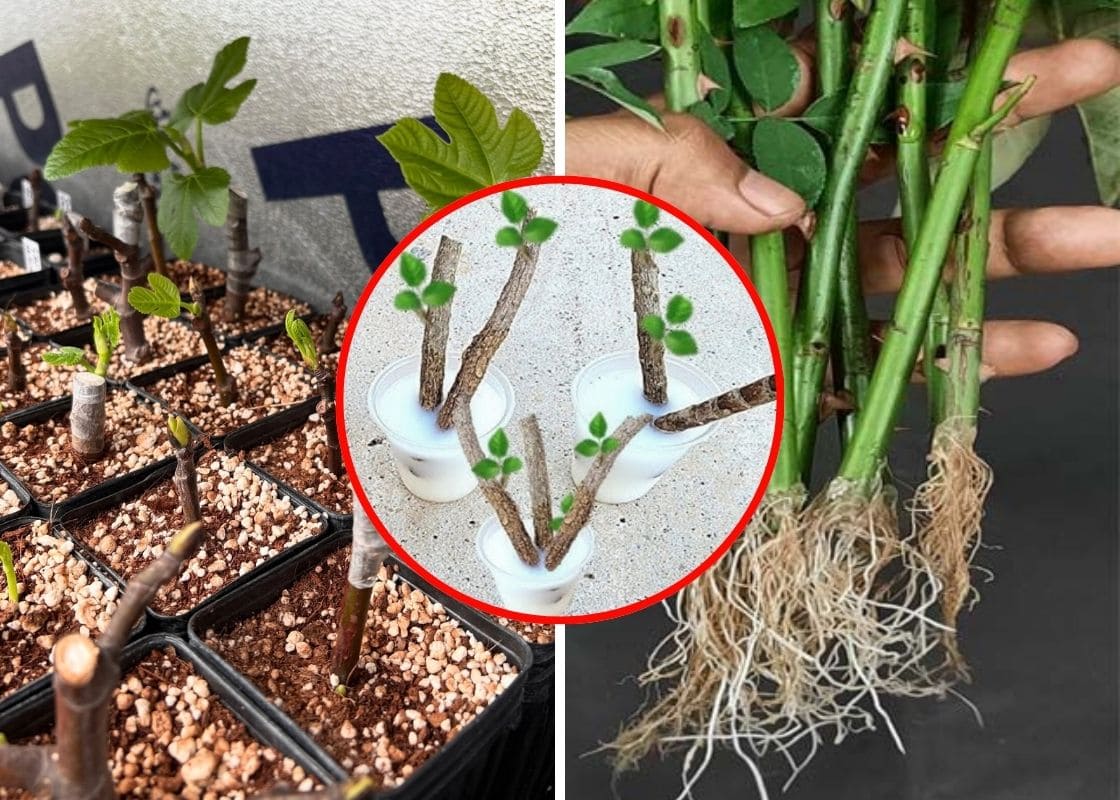Have you ever found your cherished plants under attack by pests, leaving you frustrated and searching for solutions? As a gardener with years of experience, I’ve faced my share of battles with aphids, mites, and other unwelcome guests.
Over time, I’ve learned that the best approach is often the simplest, natural insecticides made right at home. They’re not only effective but also safe for the environment, your plants, and even beneficial insects.
Let me walk you through my trusted recipes and how they’ve transformed my garden into a pest-free sanctuary.
1. Garlic Insecticide
Garlic contains sulfur compounds like allicin, which repel pests and have antibacterial and antifungal properties. These compounds interfere with the nervous systems of insects, deterring them effectively. I once saved an entire row of tomato plants with this simple spray.
Ingredients
- 3 cloves of garlic
- 1 liter of water
- 1 teaspoon of neutral soap
How to Use
First, crush the garlic cloves and mix them with water, then let the mixture sit overnight to release the sulfur compounds. Strain it to remove solids, then add the neutral soap to help the solution stick to the plants.
You spray the mixture generously on the leaves, especially the undersides where pests often hide. Reapply every 7–10 days or after rain.
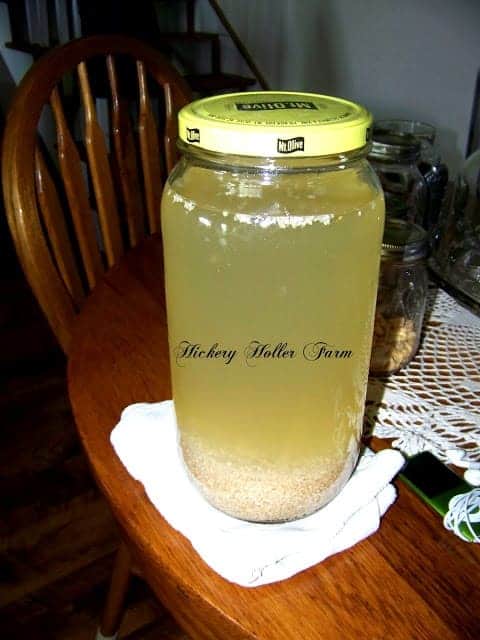
2. Potassium Soap (or Castile Soap) Insecticide
If you’re dealing with delicate plants, potassium soap or castile soap is a gentle option that’s incredibly effective against aphids, mealybugs, and mites. I’ve used it on my prized indoor ferns, and it works like magic without harming the leaves.
Potassium soap contains fatty acids that dissolve the outer membranes of soft-bodied insects like aphids and mealybugs, dehydrating them.
Ingredients
- 1 tablespoon of liquid castile soap
- 1 liter of water
How to Use
Just mix the soap and water in a spray bottle. Shake well and spray on affected plants, covering leaves, stems, and any visible pests.
You should use it during early morning or late evening to avoid sunburn on the leaves. Reapply weekly for ongoing protection.
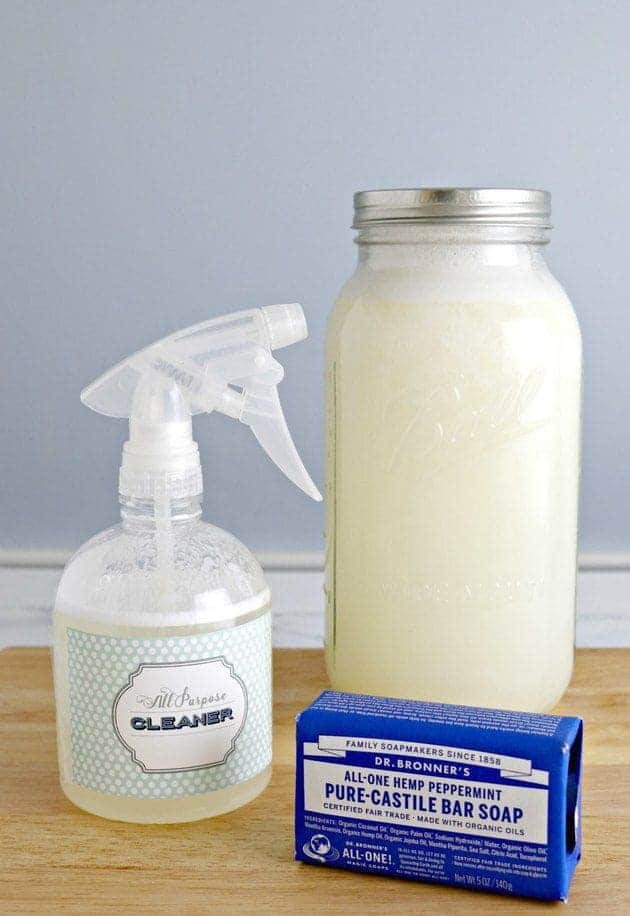
3. Chili and Pepper Spray
For more resilient pests, chili and pepper spray has been my go-to. Capsaicin, the active compound in chili and peppers, irritates and repels insects. It’s particularly effective against chewing pests like caterpillars.
Ingredients
- 1 tablespoon of chili powder or red pepper
- 1 liter of hot water
- 1 teaspoon of neutral soap
How to Use
Firstly, mix the chili powder with hot water and let it steep for a few hours to extract the capsaicin. Strain the mixture, then add the soap.
You can pray directly on the leaves and stems, focusing on areas where pests are visible. Use gloves when handling this solution as it’s spicy!
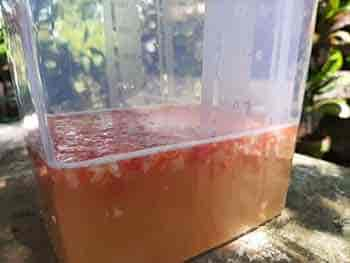
4. Neem Oil Insecticide
Neem oil contains azadirachtin, a natural compound that disrupts the feeding and reproduction of pests like mites, aphids, and whiteflies. It also has fungicidal properties.
Neem oil is a star in my garden. It’s effective against a wide range of pests, from whiteflies to mites, and even has fungicidal properties. I keep a bottle handy for my vegetable garden, and it’s never failed me.
Ingredients
- 2 teaspoons of neem oil
- 1 liter of water
- 1 teaspoon of neutral soap
How to Use
Mix all ingredients in a spray bottle and shake well. Spray it on the entire plant, ensuring thorough coverage of leaves (especially undersides), stems, and any visible pests.
In addition, you apply every 7–14 days as a preventative measure or immediately after spotting pests.
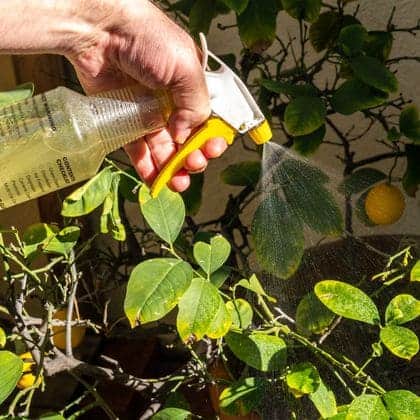
5. Alcohol Insecticide
When pests like scale insects and mites refuse to budge, I turn to isopropyl alcohol. It dries out the pests and their eggs, offering a quick and effective solution. I’ve used it sparingly on my succulents with great success.
Ingredients
- 1 part isopropyl alcohol (70%)
- 1 part water
How to Use
You need to mix alcohol and water in a 1:1 ratio. Spray directly onto visible pests, such as scale insects and mites.
Remember to always test a small area of the plant first to ensure it won’t cause damage. Use sparingly, as excessive application can harm sensitive plants.
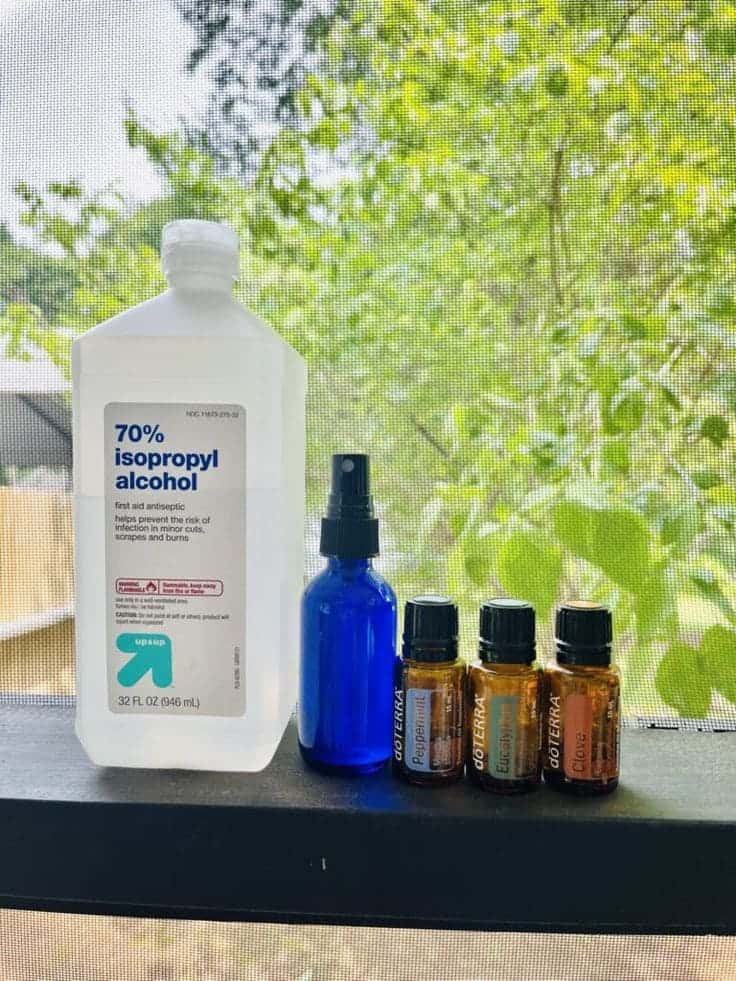
6. Citrus Peel Spray
If you’re looking for a natural repellent that’s safe for all plants, citrus peel spray is a great option.
Citrus peels contain limonene, a natural compound that deters pests like aphids and whiteflies by interfering with their respiratory systems.
Ingredients
- Peels from 4–5 lemons or oranges
- 1 liter of hot water
How to Use
Steep the citrus peels in hot water for 24 hours to extract the limonene, then you strain the mixture and pour it into a spray bottle.
Next, spray generously on plants, especially around new growth where pests tend to gather. This mild repellent works best as a preventative measure.
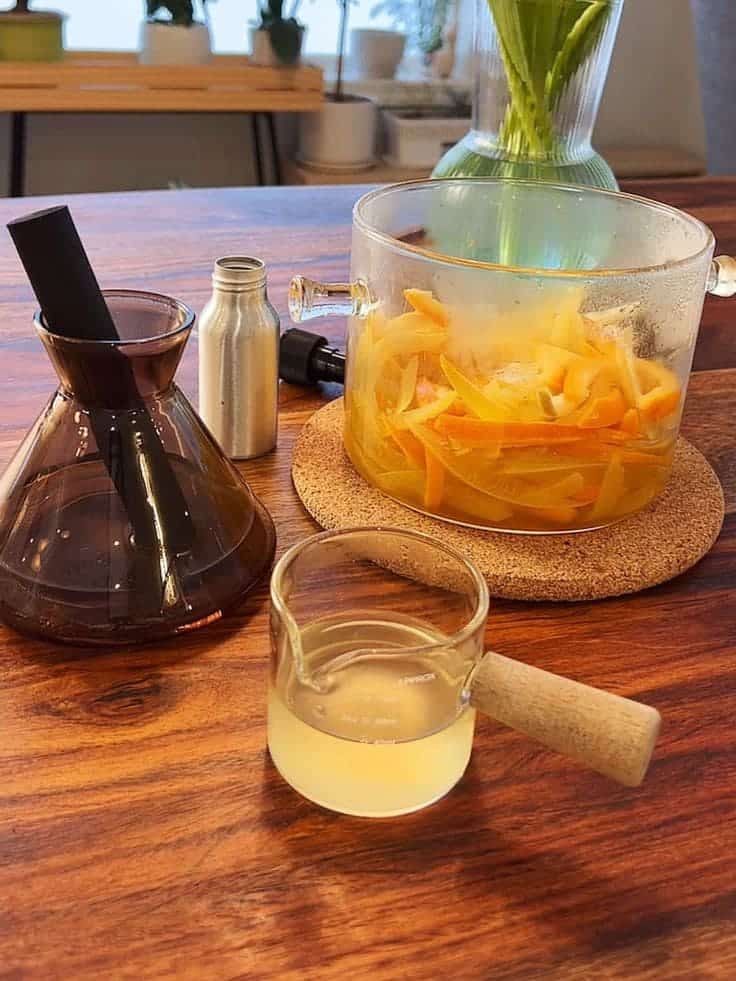
7. Mint and Rosemary Spray
Herbs like mint and rosemary have natural pest-repellent properties. They contain essential oils like menthol and camphor, which repel mosquitoes, aphids, and spider mites.
I often use this spray in my greenhouse, and it keeps mosquitoes and spider mites at bay.
Ingredients
- A handful of mint leaves
- A handful of rosemary leaves
- 1 liter of water
How to Use
You firstly boil the herbs in water for 10–15 minutes to release their oils. Allow the mixture to cool, then strain and transfer to a spray bottle.
Next, spray it on your plants, focusing on areas with visible pests. The pleasant herbal aroma is a bonus for your garden.
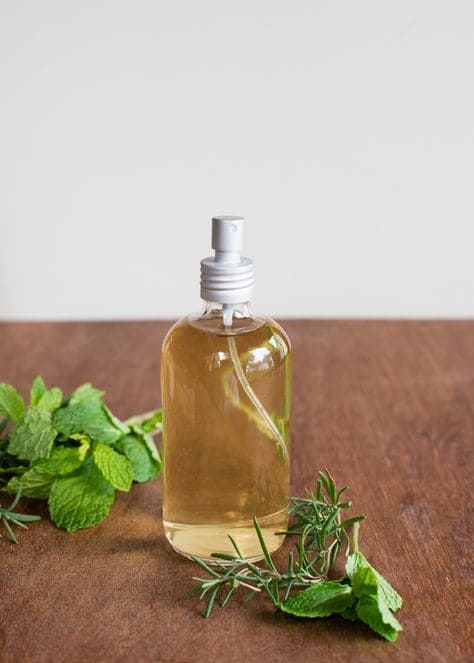
8. Vinegar and Water Spray
Vinegar is a household staple, its acetic acid disrupts the exoskeletons of insects, making it a quick solution for ants, aphids, and mosquitoes. I’ve used it to deter ants and aphids on my patio plants.
Ingredients
- 1 part white vinegar
- 3 parts water
How to Use
You just mix the vinegar and water in a spray bottle, then spray it on the leaves and stems of affected plants.
Avoid excessive use, as vinegar can alter soil pH and potentially harm sensitive plants. You should use it as a targeted treatment rather than a general spray.
